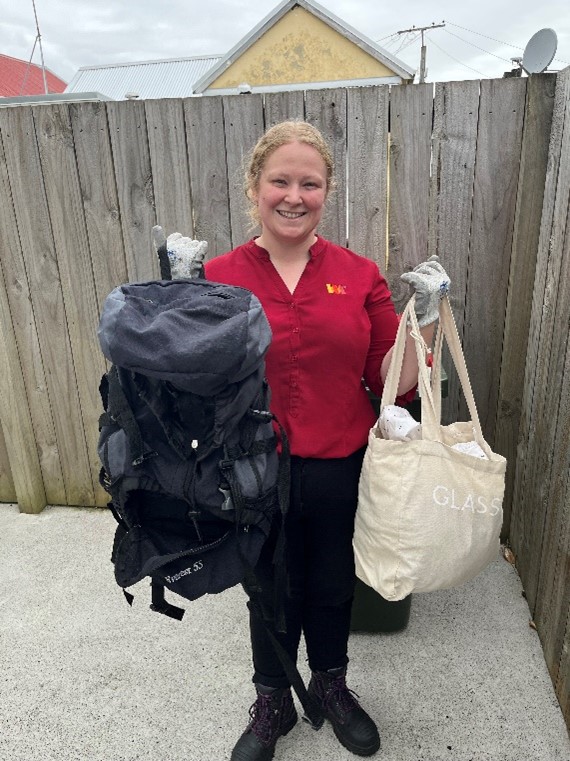-
For Home
For Home
Categories
- For Builders
- For Business
-
About Us
About Us
- Contact and Support
- Sustainability

We caught up with Waste Management Dunedin’s Waste Minimisation Coordinator - Emily Colquhoun. Emily is based at the University of Otago and is the custodian of our waste contract on campus and 11 residential colleges.
Emily has been with Waste Management for 20 months and is making real difference to sustainability at the university. For example, she runs a clean-up week a few times a year to help keep the colleges clean and salvage used goods for the uni’s op shop.
We asked Emily a few questions about being part of the Waste Management team.

Emily with some items for the Uni op shop
What’s your job in a nutshell?
My role as waste minimisation coordinator is to look after the University of Otago contract and find ways to reduce waste on campus and within the colleges. As part of this, I do waste audits to figure out what is the best approach and provide specific bin types or extra bins when needed. Being based on-site makes it easier for me to maintain the relationship between WM and the university.
What do you enjoy most about your job?
Every day is different. I also get to meet a lot of people with similar sustainable mindsets who want to make a difference.
What are some of the challenges?
The biggest challenge I face is to get through to first-year students. A lot of them have moved out of their family homes and don’t understand recycling or how waste works. Some of these students come from different parts of the country with different recycling methods. Students are provided with information packs on recycling and waste but still need to be educated on best uses. The cleaning crew on campus is a great help with this, as they go around helping educate if they see inconsistencies in the recycling. This year there is approximately 3000 new students who will need educating!
What do you wish more people knew about Waste Management?
We don’t just take rubbish away. We have an amazing team that constantly tries to protect the environment. I’d also like people to know more about our modern landfills!
What’s your best sustainability tip?
Start small, one step at a time. Start by looking at products you are buying in retail shops. Can the product be recycled? How much packaging does it have? If you try to do everything at once it can be very overwhelming.